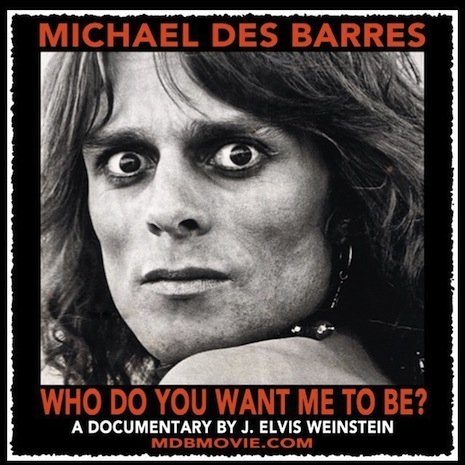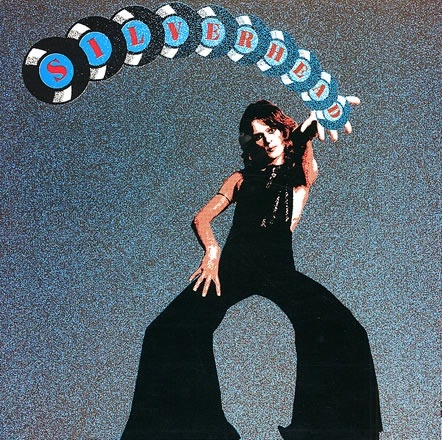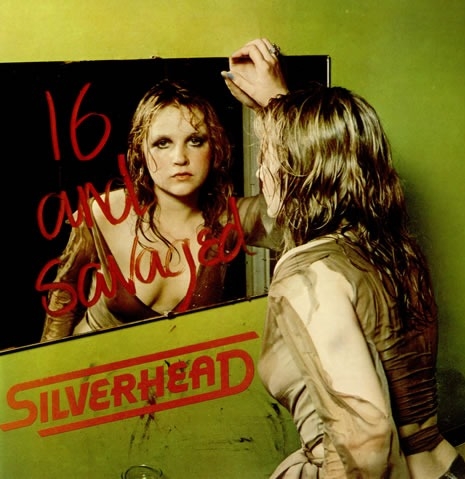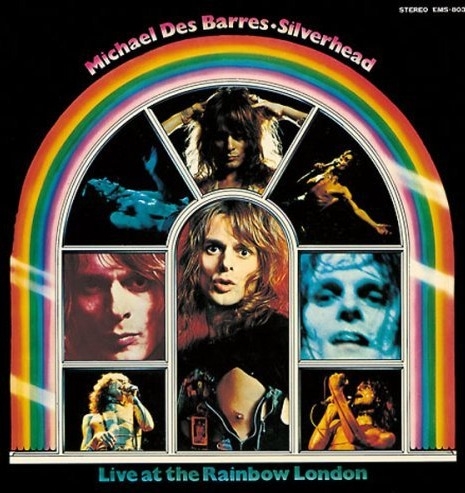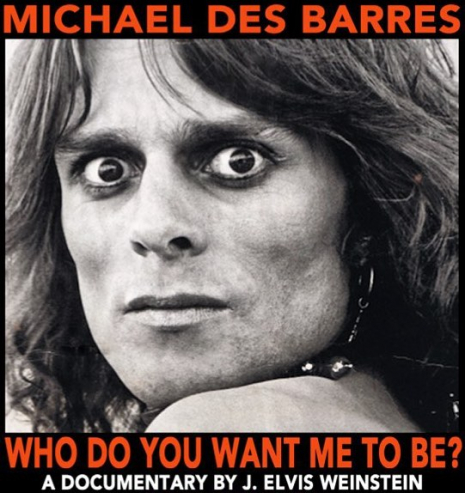
Five years ago, we told you about the marvelous documentary, ‘Michael Des Barres: Who Do You Want Me to Be’. At the time, the doc could only be seen on the film festival circuit, but recently it’s been made available on streaming platforms for the first time. As my last viewing had been years ago, I recently watched it anew via Amazon Prime. I was reminded that director J. Elvis Weinstein did an incredible job presenting Michael’s truly amazing life, and the film was a joy to see again.
Below is a slightly revised version of our 2015 post concerning ‘Michael Des Barres: Who Do You Want Me to Be?’.
*****
Musician/actor/satellite radio DJ Michael Des Barres has worn many hats over his decades-long career. As a vocalist, he’s fronted such acts as the Power Station, filling in for Robert Palmer on their lone US tour (with a high-profile appearance at Live Aid), and the highly underrated Somebody up There Likes Me, a neglected LP that deserved better. His biggest success (in the form of royalties) has been as songwriter, having co-penned “Obsession,” a worldwide hit for ‘80s synth-pop act Animotion. In addition, he’s a talented character actor, best known for his recurring role as TV villain Murdoc on MacGyver. His versatility is acknowledged in the title of the fabulous documentary, Michael Des Barres: Who Do You Want Me to Be?. Dangerous Minds got in touch with the director of the film, J. Elvis Weinstein, and asked him some questions via email.
How did you come to know Michael’s work?:
J. Elvis Weinstein: The first time I came to know Michael as a musician was when he joined the Power Station, but I recognized him from TV roles at the time. I was a TV junkie as a kid. He lived in my head as a trivia question for many years. I’d always notice him in TV and movie roles.

The many faces of Murdoc.
How and when did you approach Michael about making a documentary about him? Was he open to the idea or did it take some convincing?:
J. Elvis Weinstein: We met several years ago working on a TV series, me a as writer/producer, he as a cast member. We spoke about writing a book and even did some interviews at the time, but it never materialized. Then a few years ago, we ended up guests on the same radio show and I mentioned we should have done a documentary instead of a book. There was instant agreement; we were shooting within three weeks.
What drove you to make the documentary?:
J. Elvis Weinstein: I knew that there was a great story to be told and that there were things I could learn for myself from telling it.
Michael appears open and frank during the interview segments in the film. Were you surprised by anything he told you? One of the things I learned from watching the film is that Silverhead was really Michael’s project and the other members were hired guns—I never knew!:
J. Elvis Weinstein: Michael was very generous in his willingness to examine and re-examine his life as honestly as possible through this process. I think he realized very early on that I wasn’t striving for a sensationalistic telling of the story but rather a very human one.
As for surprises, I don’t have any specific ones that jump out. While Silverhead were hired musicians, they quickly became a very collaborative and tightly knit band. Michael was very much the leader, but the sound evolved from the players.
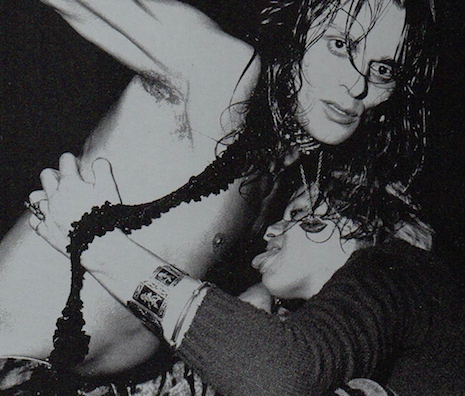
A fan shows Michael some love during a Silverhead gig, 1974.
I also learned that Michael and his ex-wife Pamela (Miss Pamela of the GTO’s) met on the set of a movie (the still unreleased Arizona Slim). It’s really interesting to see some of their first interactions captured on film. What do you make of their relationship, then and now?:
J. Elvis Weinstein: I think the thing that is the coolest about them is the relationship they’ve cultivated since splitting as a couple. The respect, warmth, and love they maintain for one another as friends and parents of a great son is a lovely example for everyone.
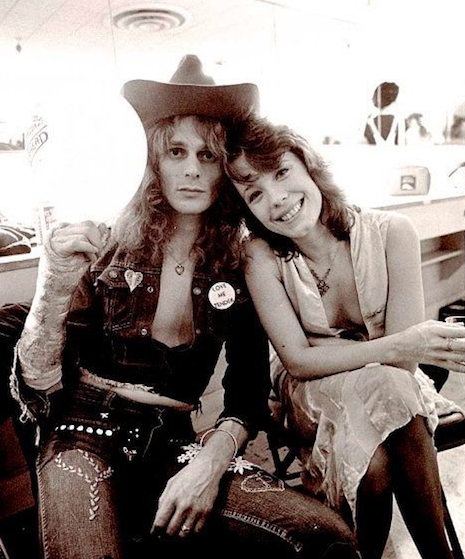
Continues after the jump…






